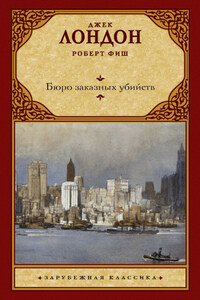Настоящий сборник рассказов и историй на английском языке известного американского писателя Деймона Раньона не только развлечёт вас, но и значительно расширит ваш словарный запас и поможет активизировать его, a также поможет развить навыки устной речи (при пересказе и ответах на послетекстовые вопросы). Каждый рассказ сопровождается списком трудных или непонятных слов и выражений, а также послетекстовыми вопросами и заданиями, которые можно использовать как для самостоятельной работы, так и в учебной группе (если вы преподаватель или репетитор). Под заголовком каждого рассказа рассказов в скобках указано количество слов.
Кроме этого, в книге имеется специальное приложение, в котором имеются русские переводы некоторых рассказов сборника (эти рассказы помечены значком*).
Каждый читатель может попробовать свои силы в письменном переводе любого из этих рассказов и сравнить свой перевод с приведенным в книге.
Книга адресована всем, кто желает усовершенствовать навыки чтения и перевода, расширить словарный запас или просто получить удовольствие от чтения на английском языке.
Рассказы подверглись незначительному сокращению и адаптации.
Несколько слов об авторе (из Википедии).
Альфред Дэймон Раньон (4 октября 1880 – 10 декабря 1946) американский газетчик и автор рассказов. Наиболее известен своими рассказами, прославляющими мир Бродвея в Нью–Йорке, выросшего из эпохи сухого закона Википедия.
Он сочинял юмористические и сентиментальные рассказы об игроках, дельцах, актерах и гангстерах.
Его характерный разговорный стиль известен как смесь формальной речи и красочного сленга, почти всегда в настоящем времени и всегда лишенный сокращений.
(4938 words)
In Boston, there is a place where you can get a nice broiled lobster. One evening a character by the name of Horse Thief and me are in there enjoying our meals.
This Horse Thief is called Horsey for short, and not because he ever steals a horse but because everyone from coast to coast knows that he may steal one if the opportunity comes.
Personally, I consider Horsey a very fine character, because anytime he is willing to share his good fortune.
Well, at a table next to us are four or five characters that all seem to be well–dressed, and stout–set, and red–faced, and prosperous–looking, and who all speak with the true Boston accent. Such characters are bound to be politicians, retired cops, or contractors, because Boston is really quite infested with characters of this nature.
I am paying no attention to them, because they are drinking local ale, and talking aloud, and I definitely know that when a Boston character is engaged in aleinghimself up, it is a good idea to let him alone, because the best you can get out of him is maybe a boff on the beezer. But Horsey is very much interested in their conversation, and finally I see what is attracting his attention, when one of the characters speaks as follows:
"Well," he says, "I am willing to bet ten thousand dollars that he can outeat anybody in the United States any time."
Now at this, Horsey gets right up and steps over to the table and bows and smiles in a friendly way on one and all, and says:
"Gentlemen," he says, "pardon the intrusion, but," he says, "do I understand you are speaking of a great eater who resides in your fair city?"
Well, these Boston characters all gaze at Horsey in such a hostile manner that I am expecting any one of them to get up and request him to let them miss him, but he keeps on bowing and smiling, and they can see that he is a gentleman, and finally one of them says:
"Yes," he says, "we are speaking of a character by the name of Joel Duffle. He is without doubt












